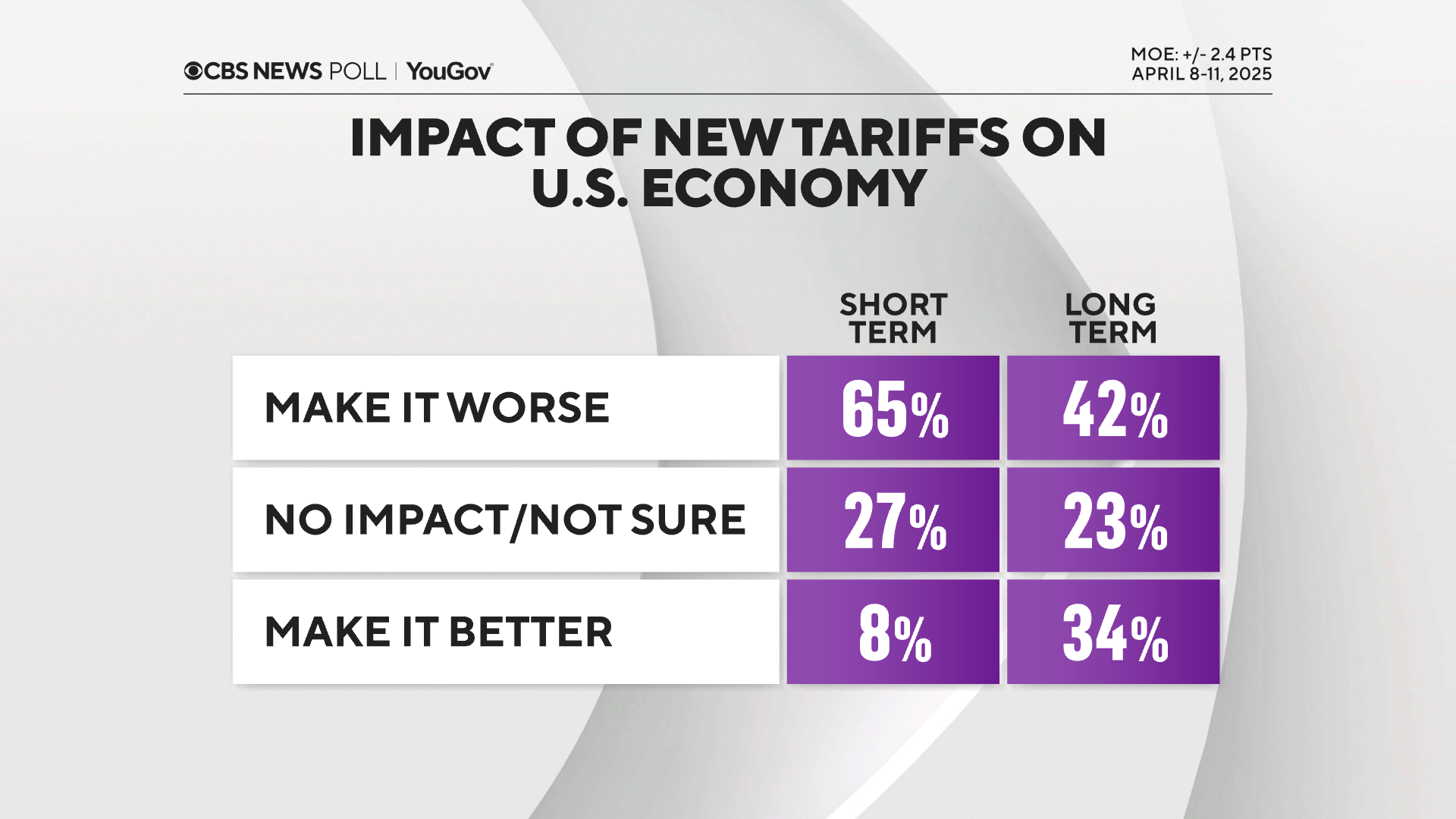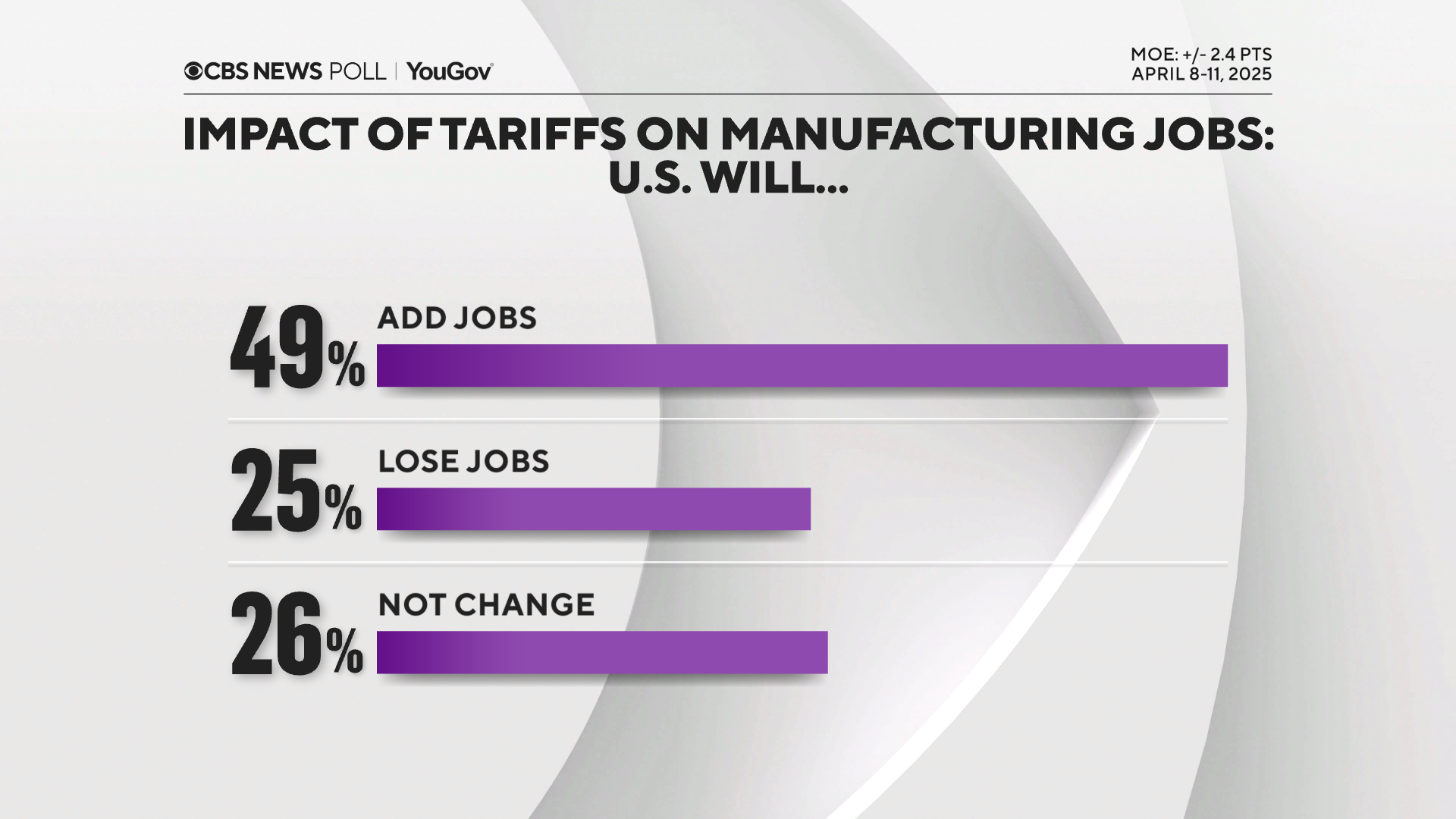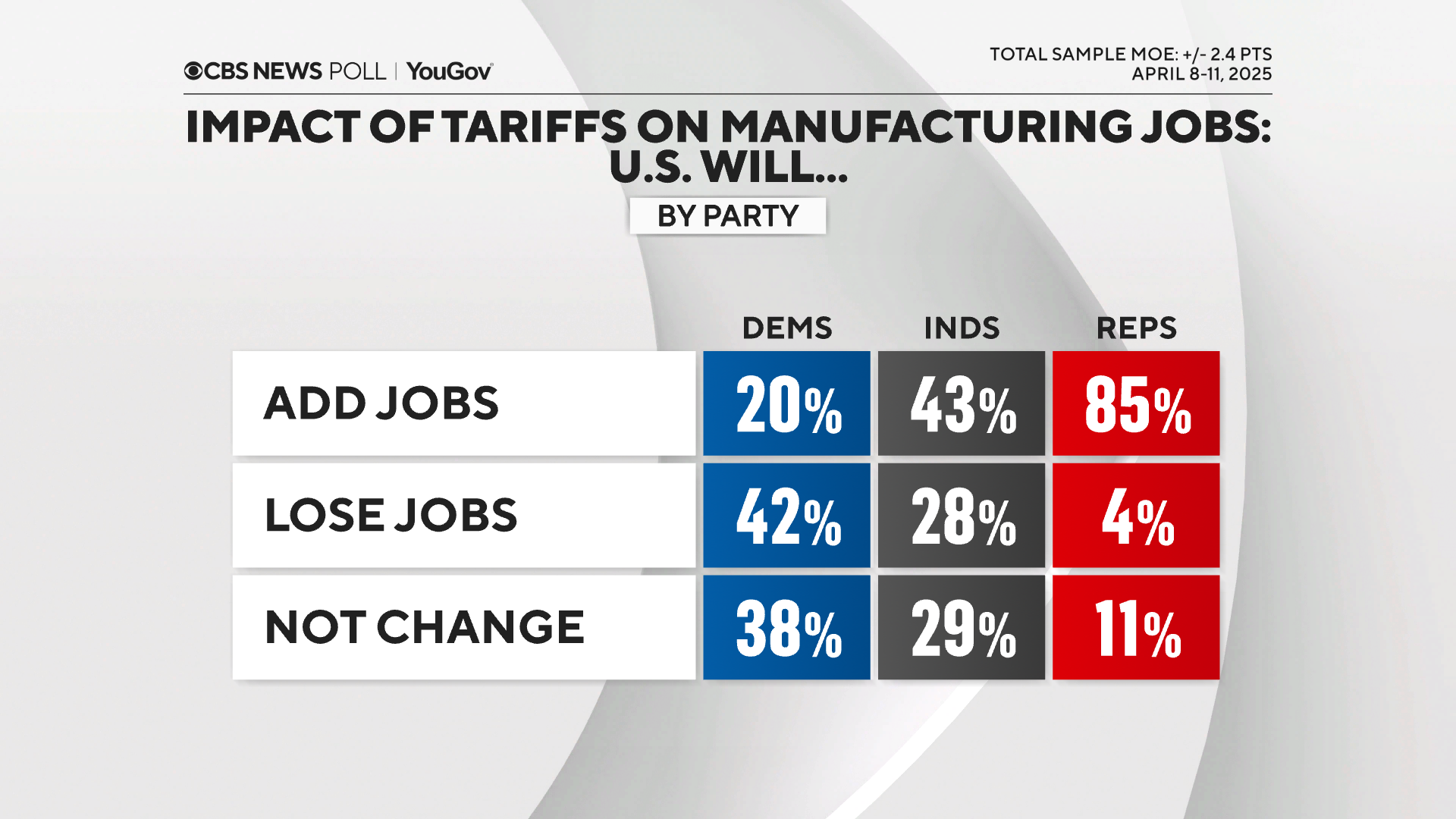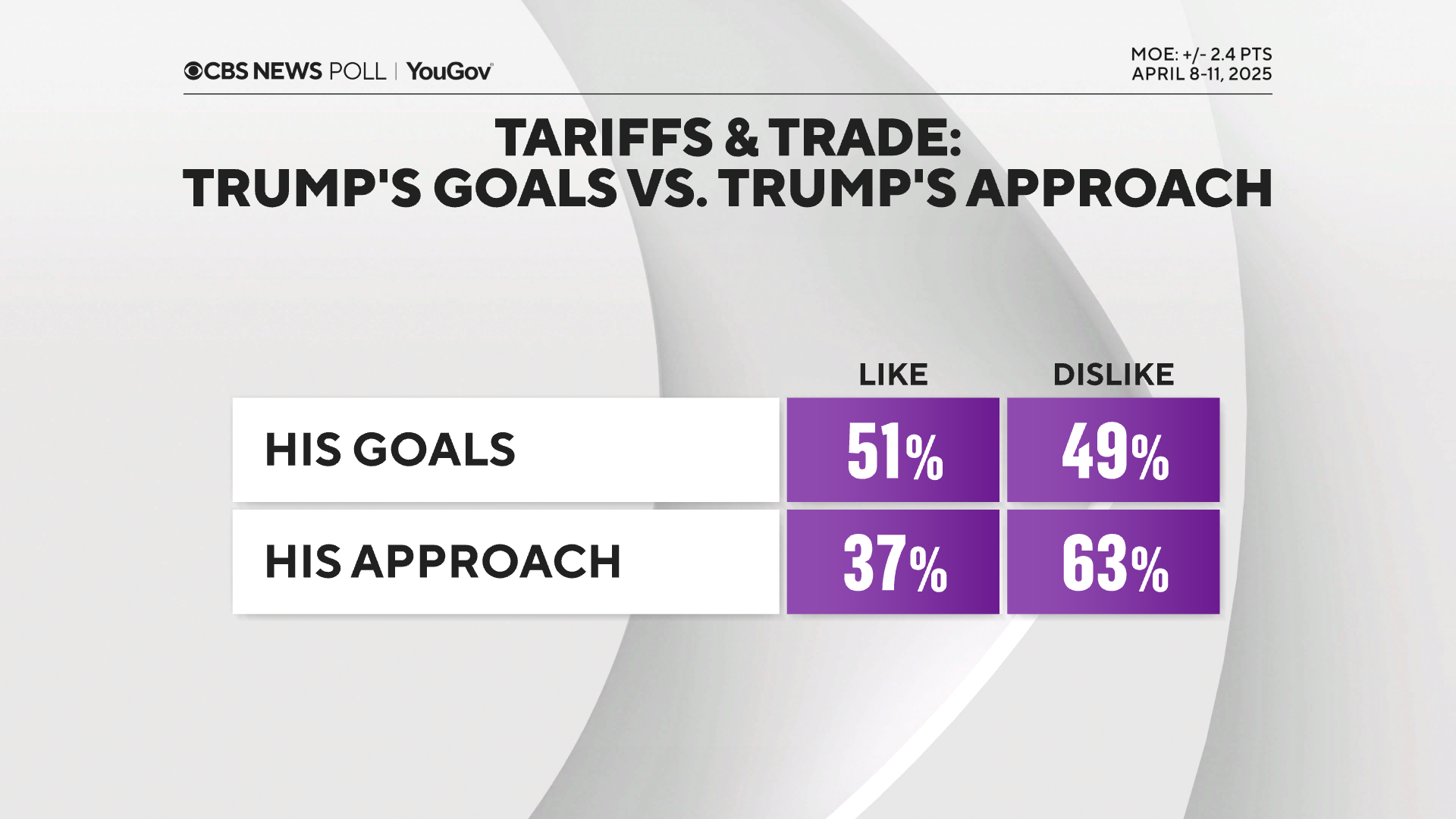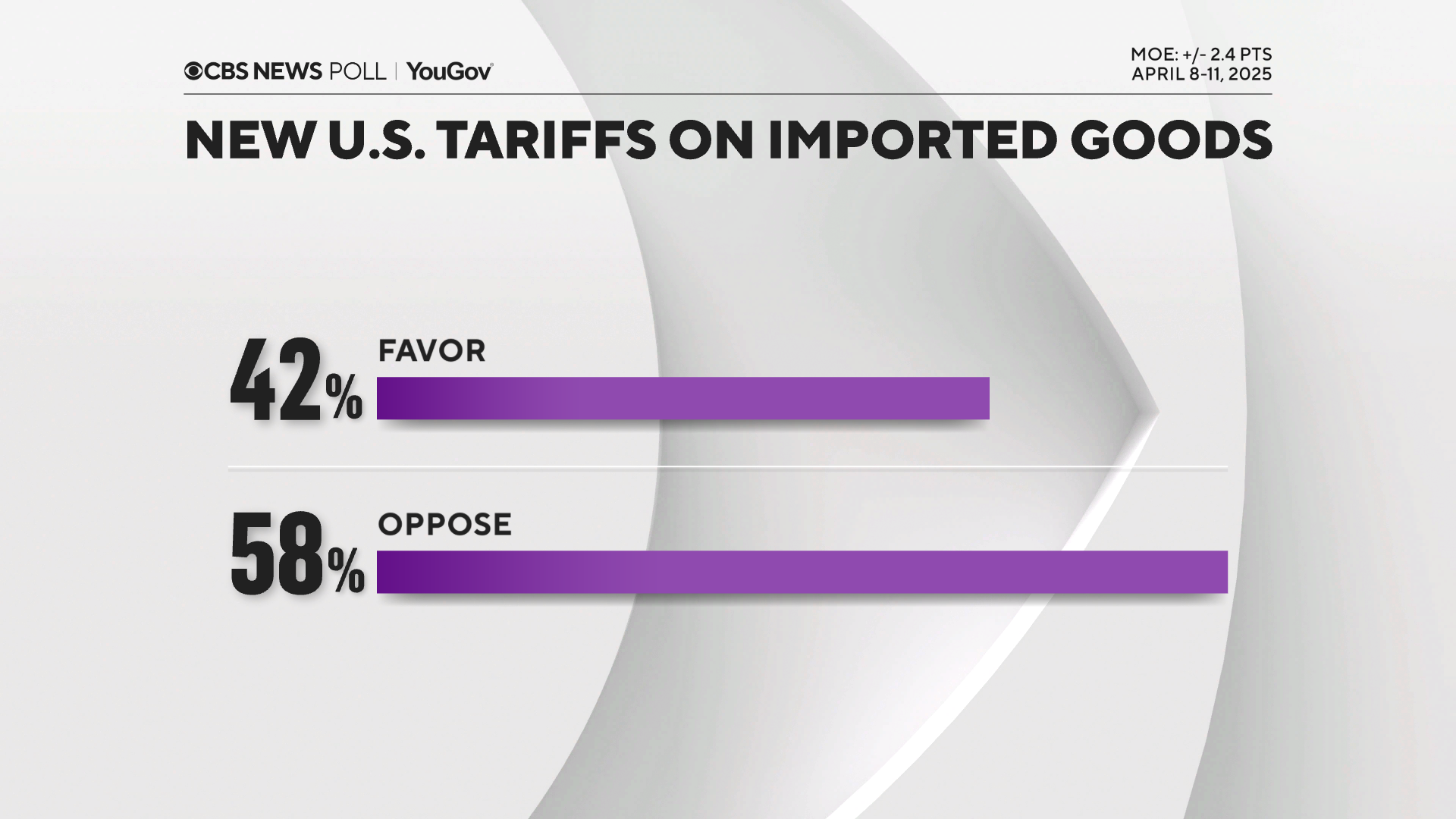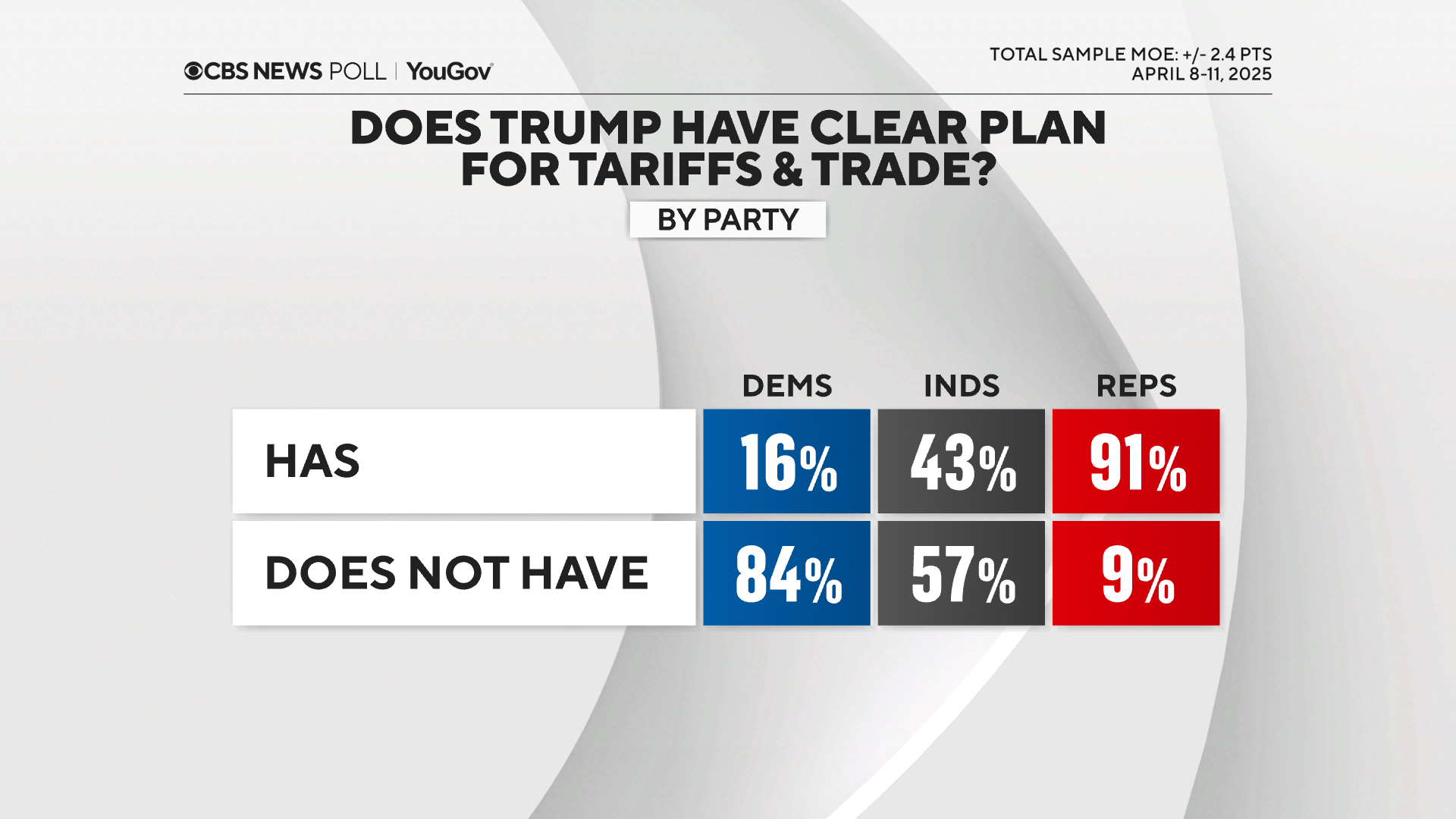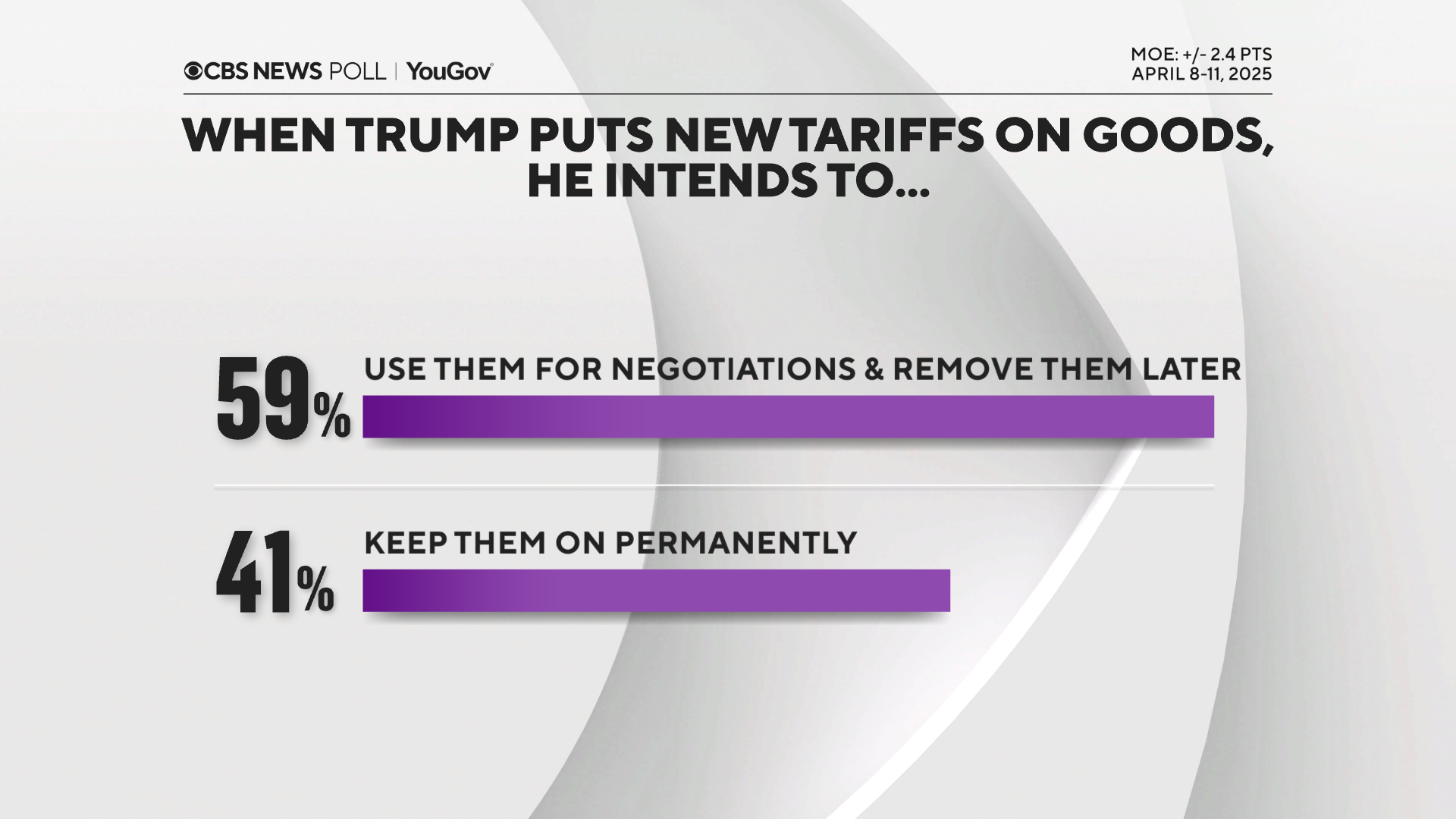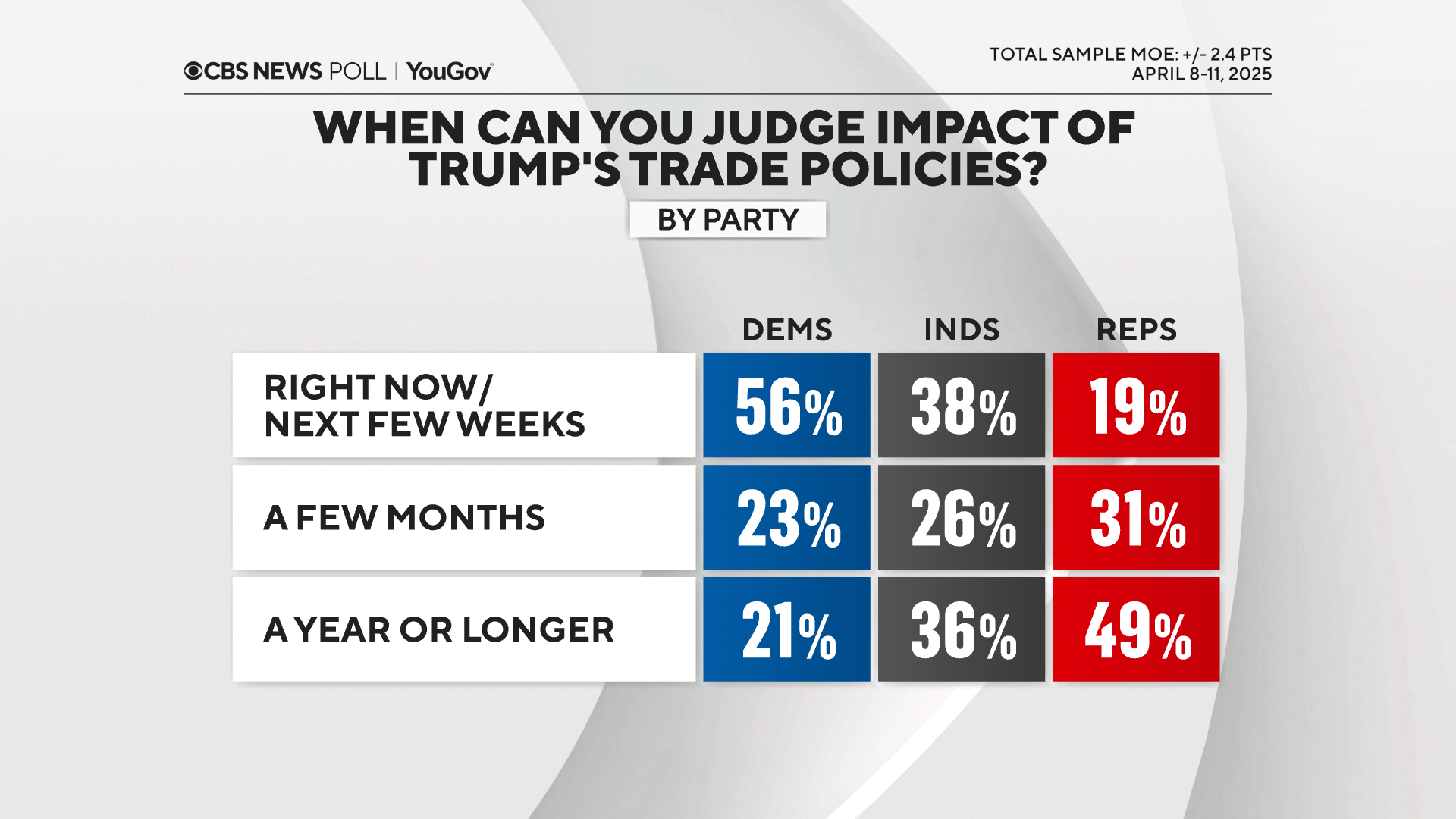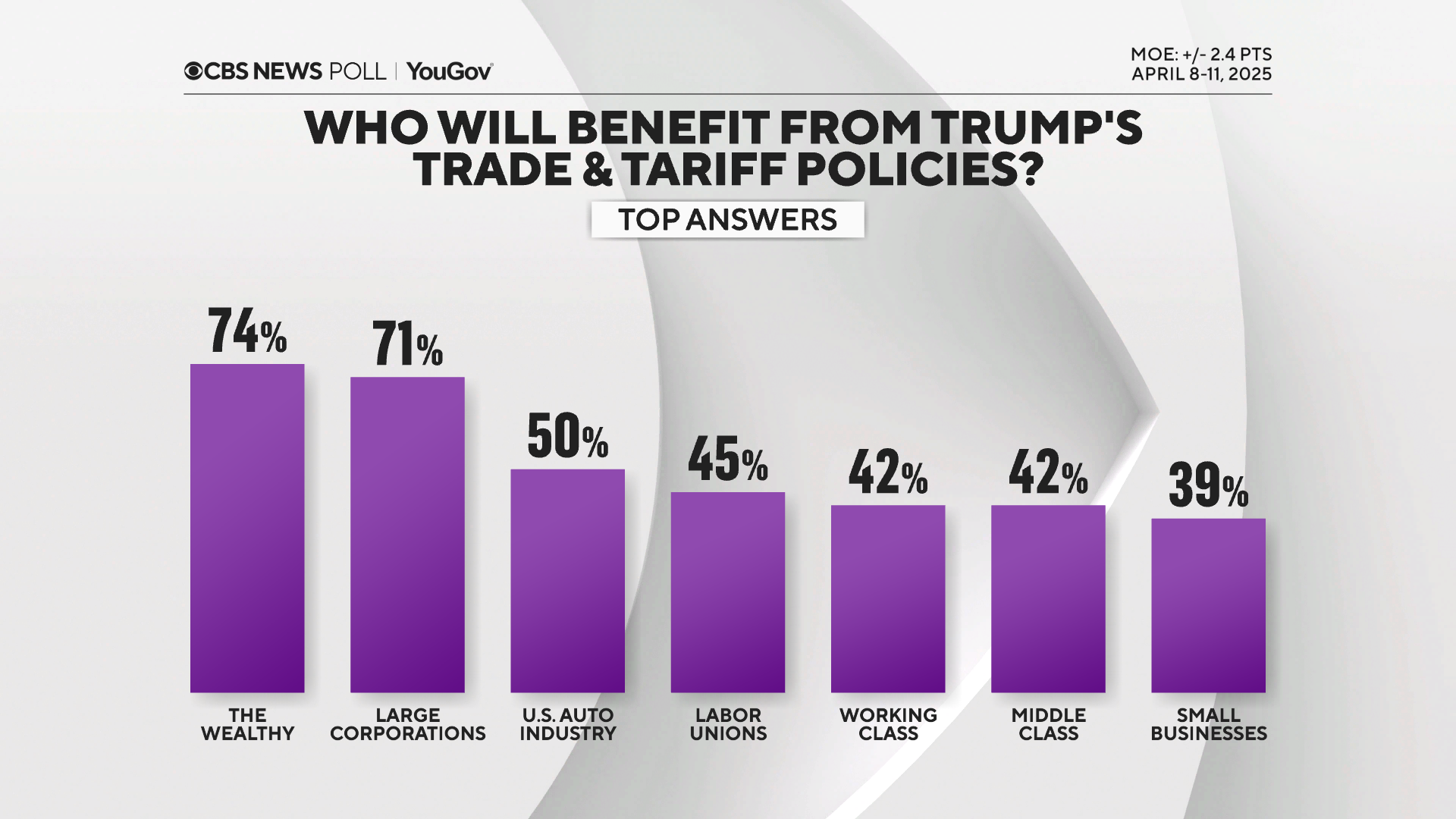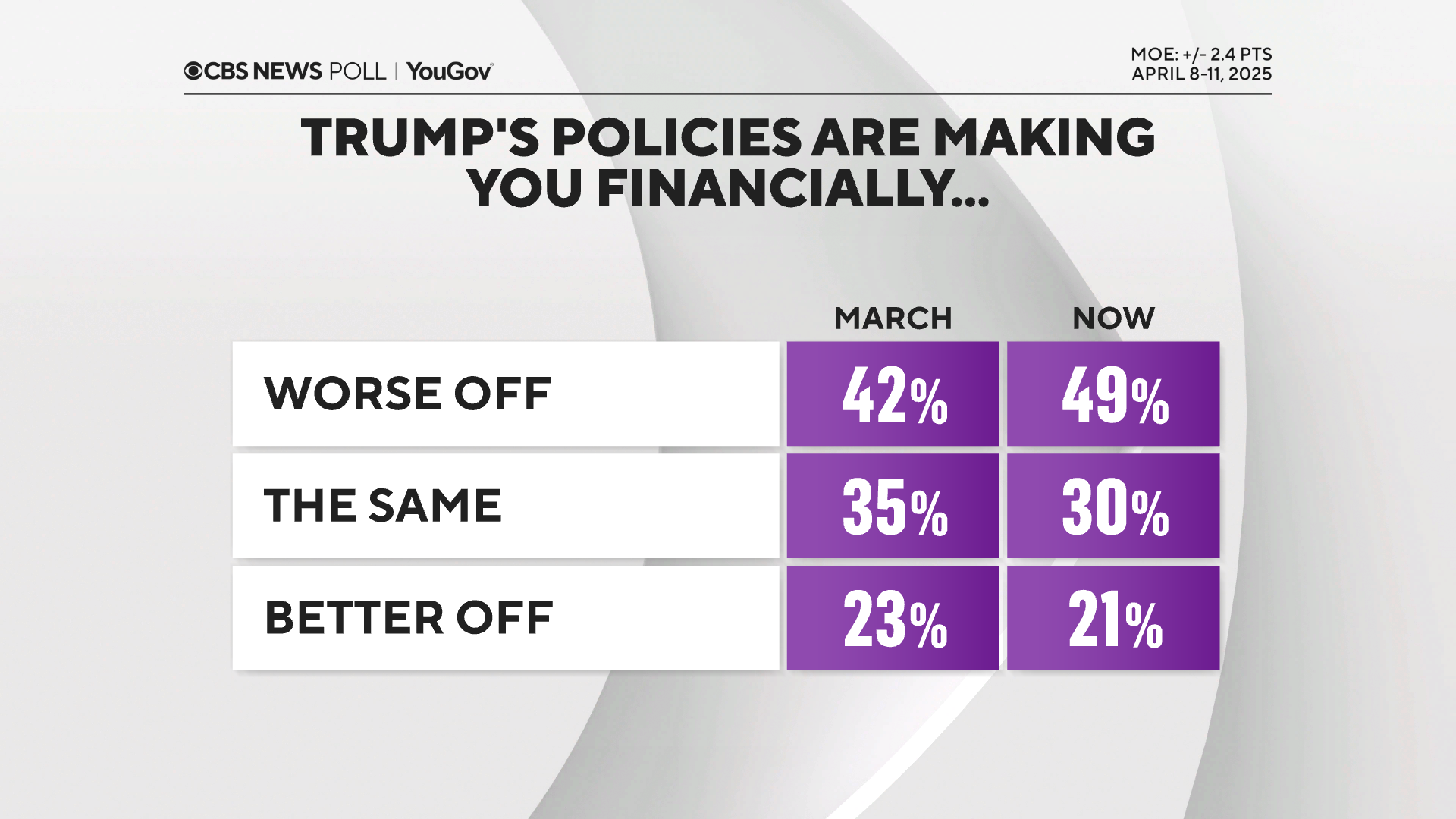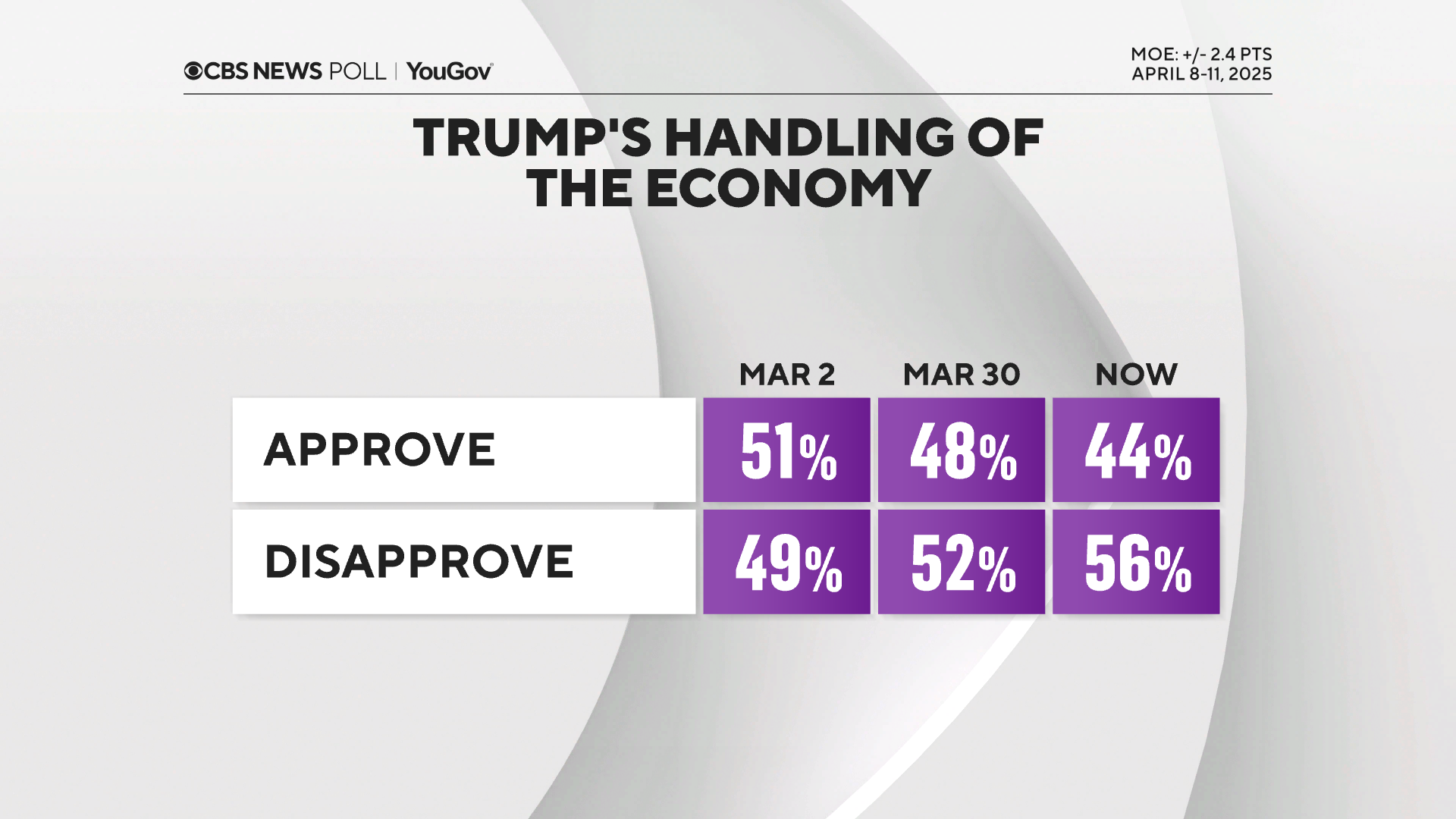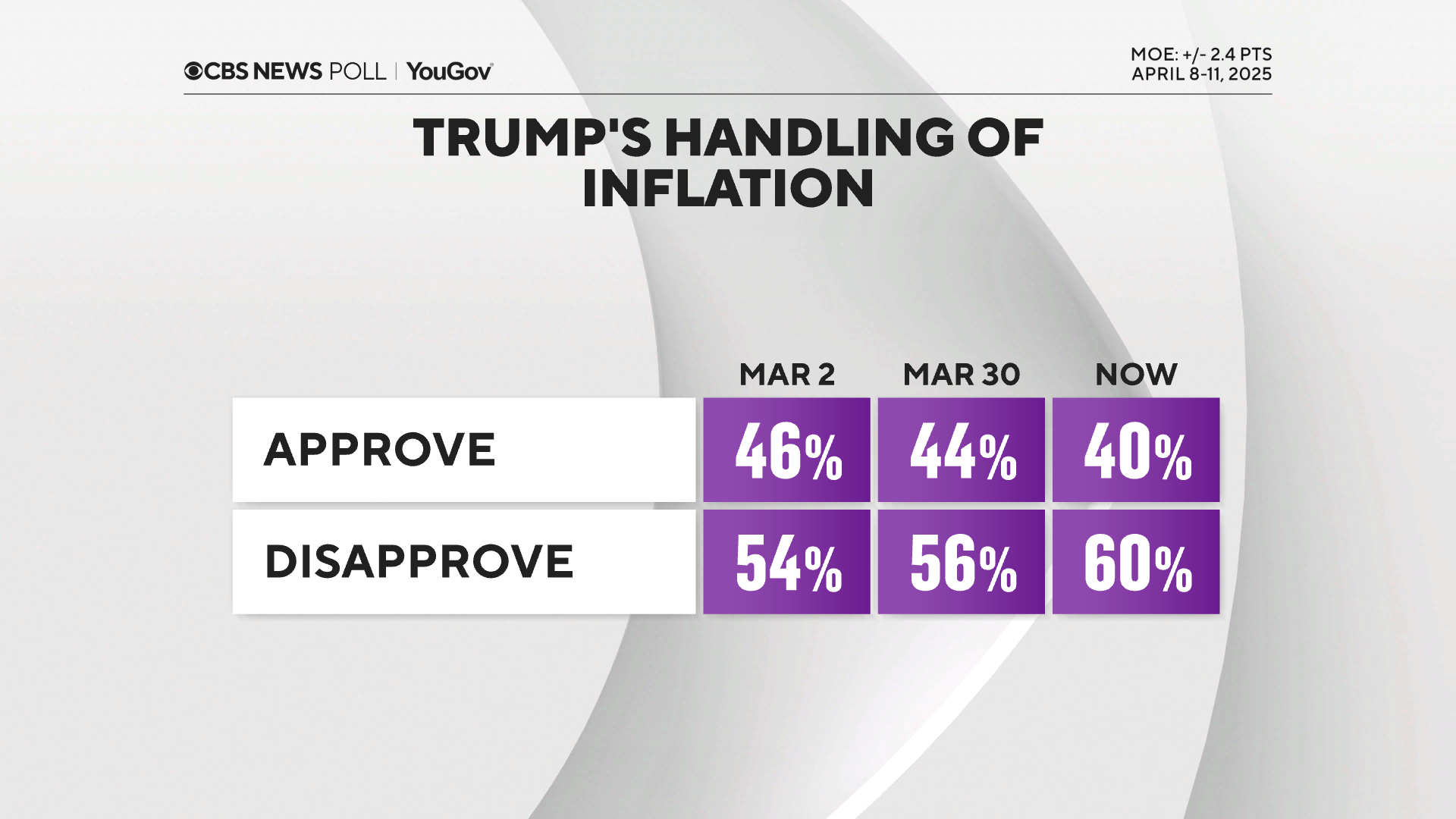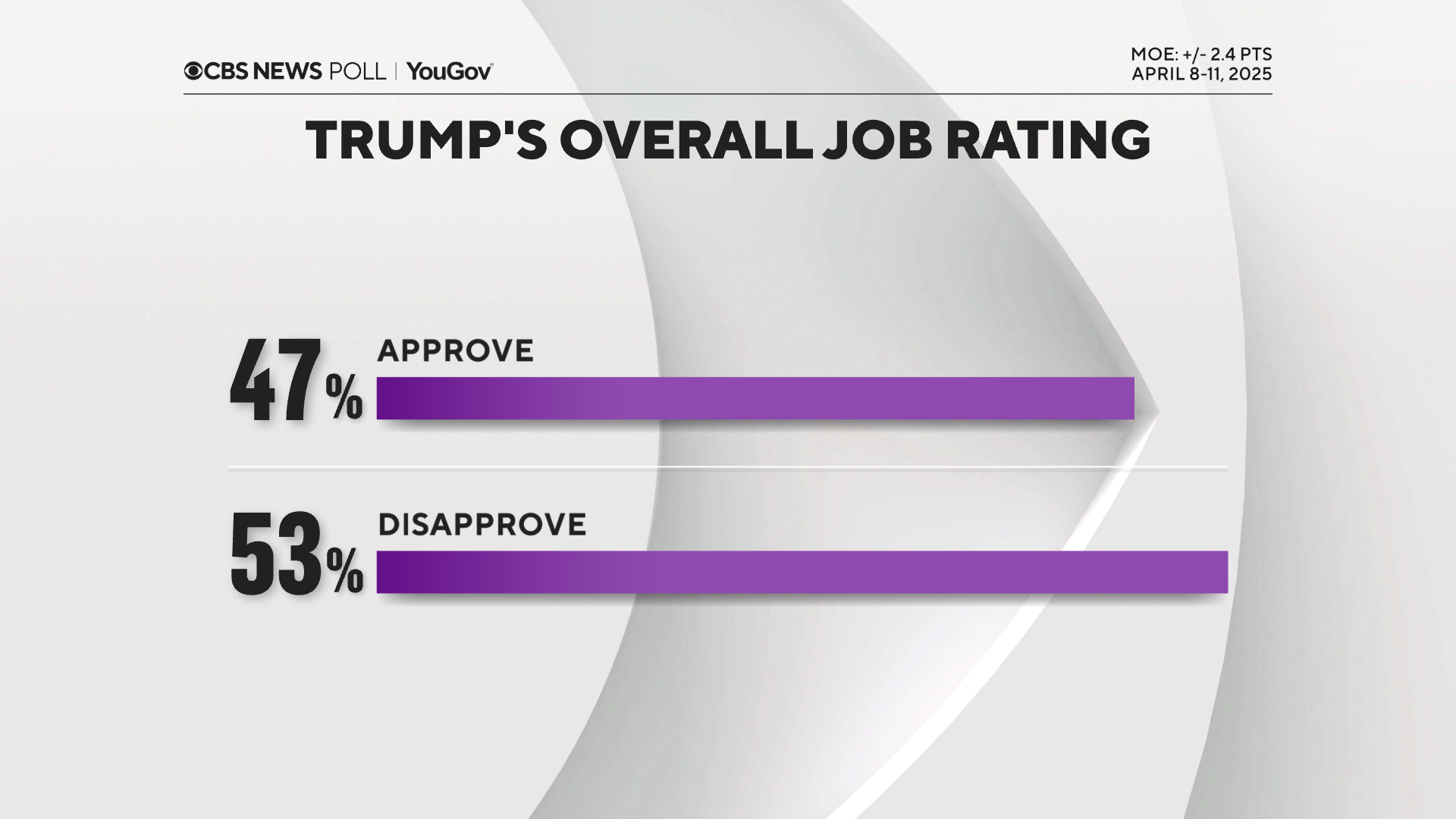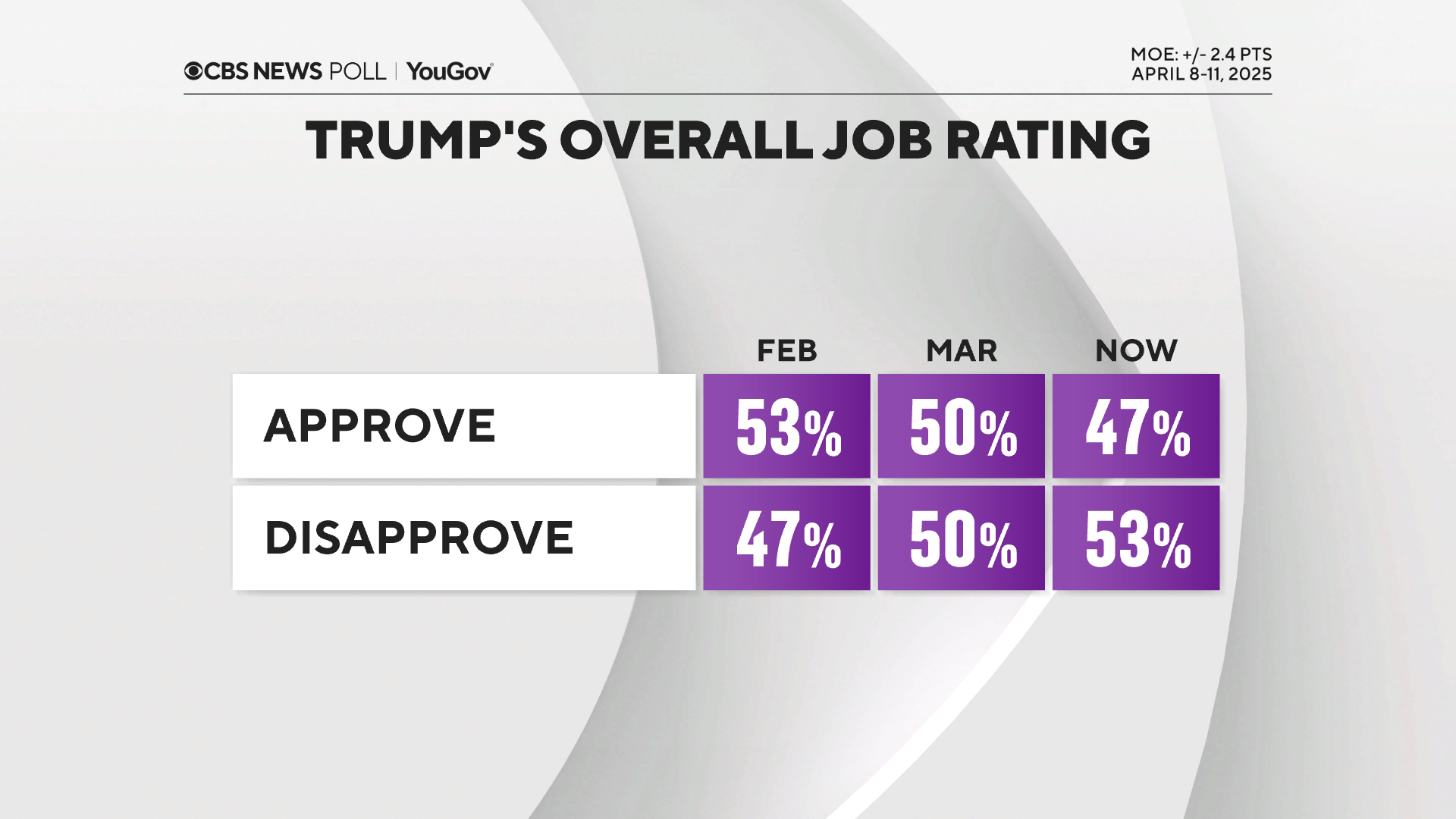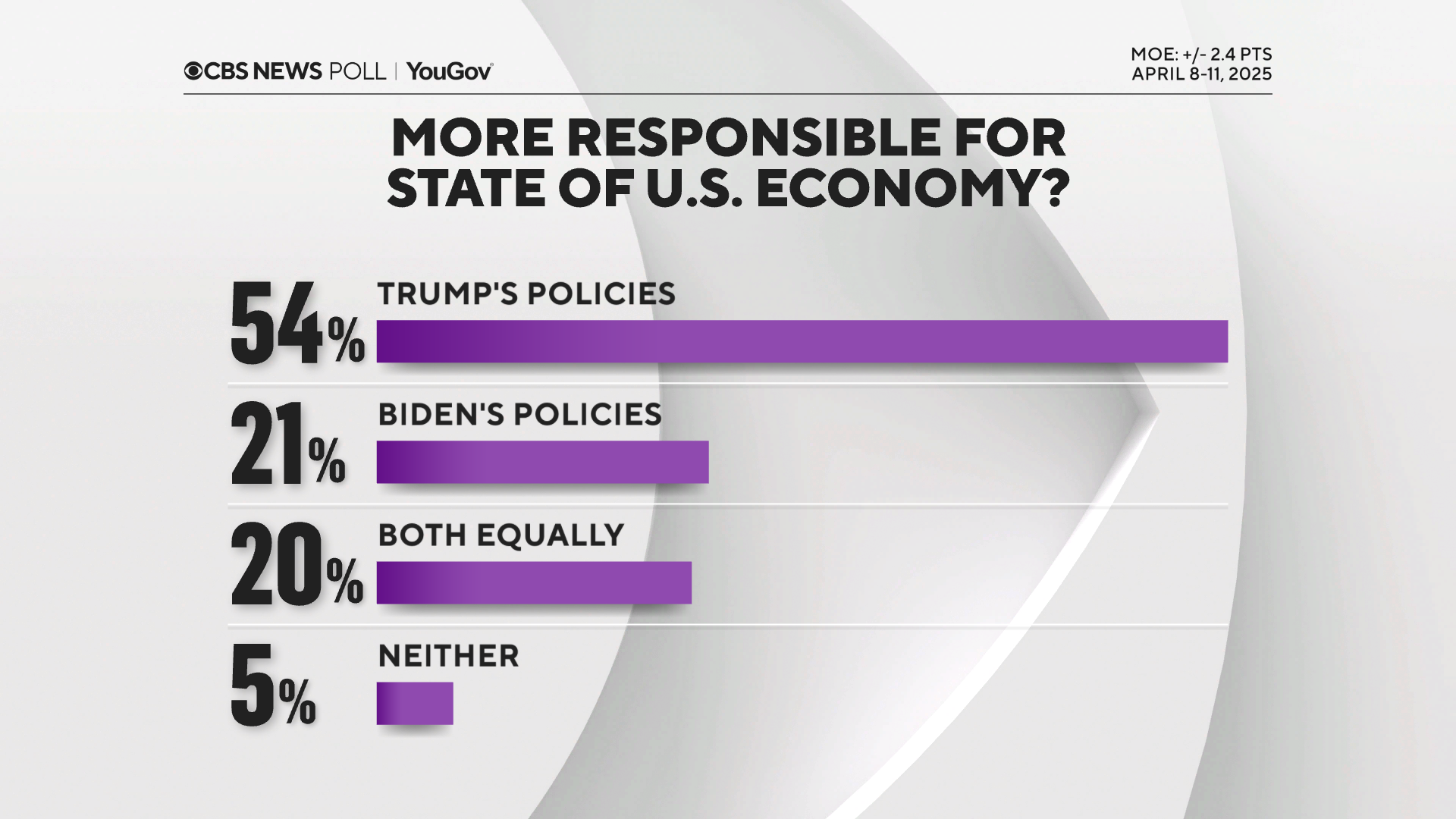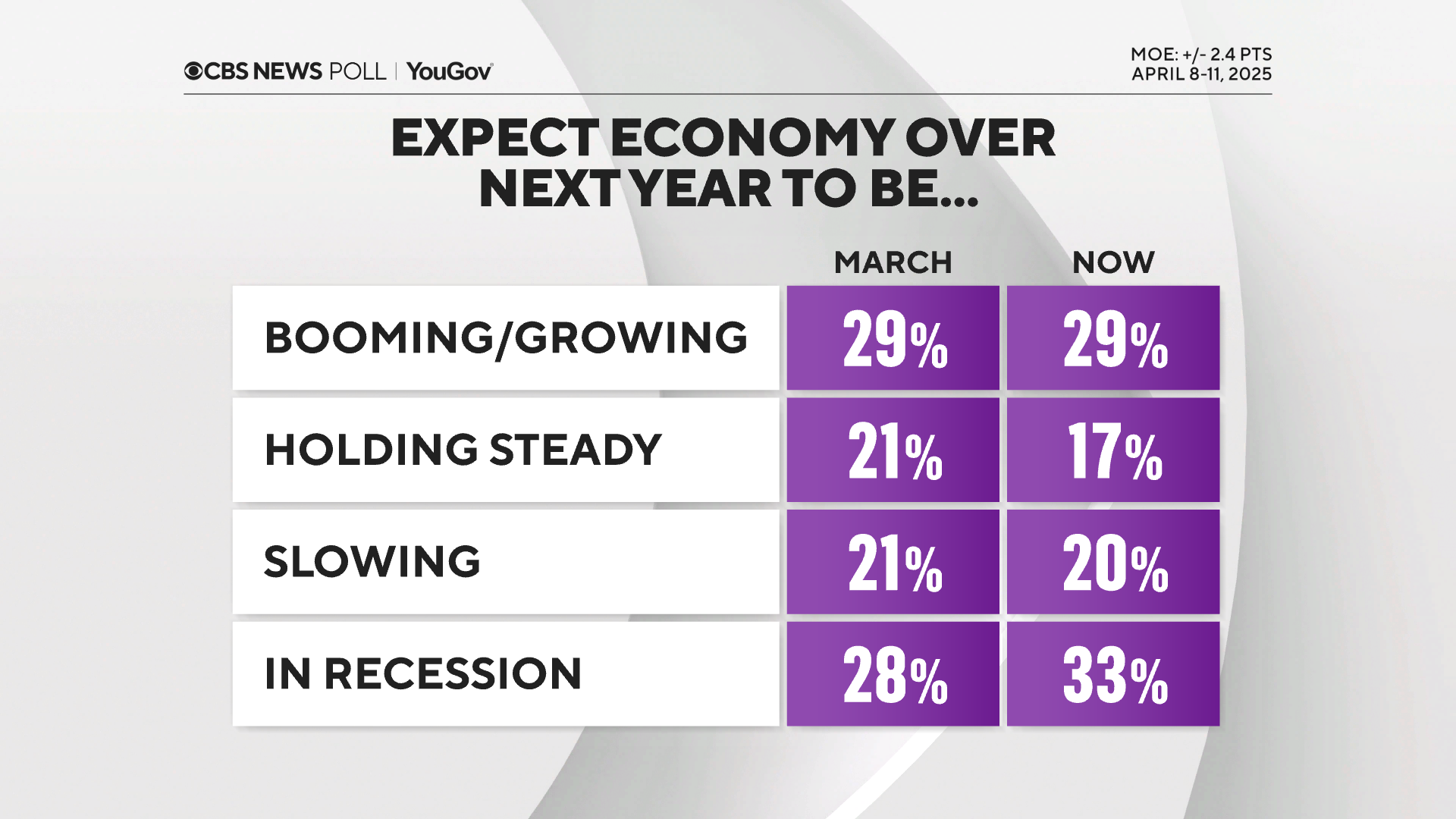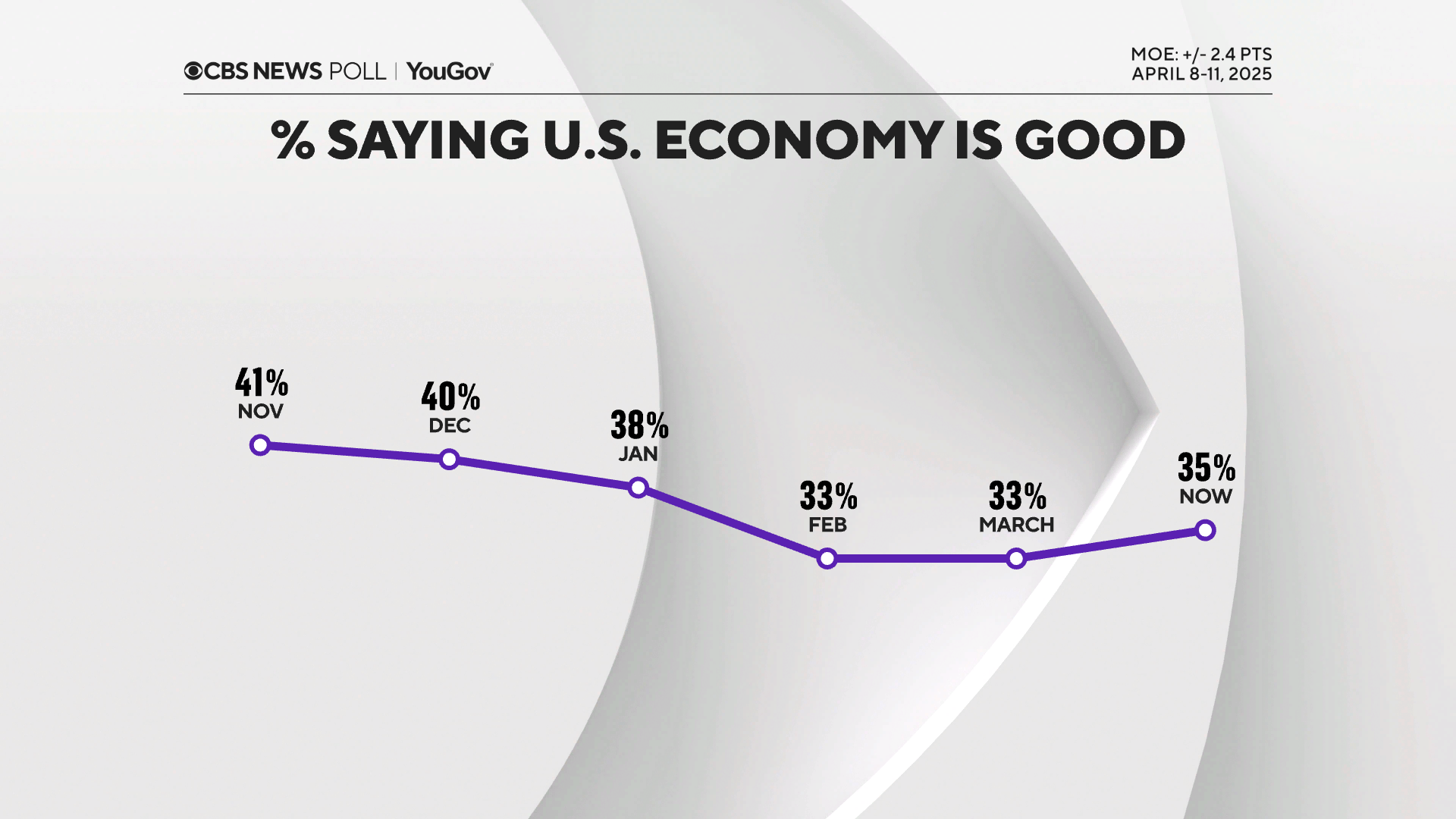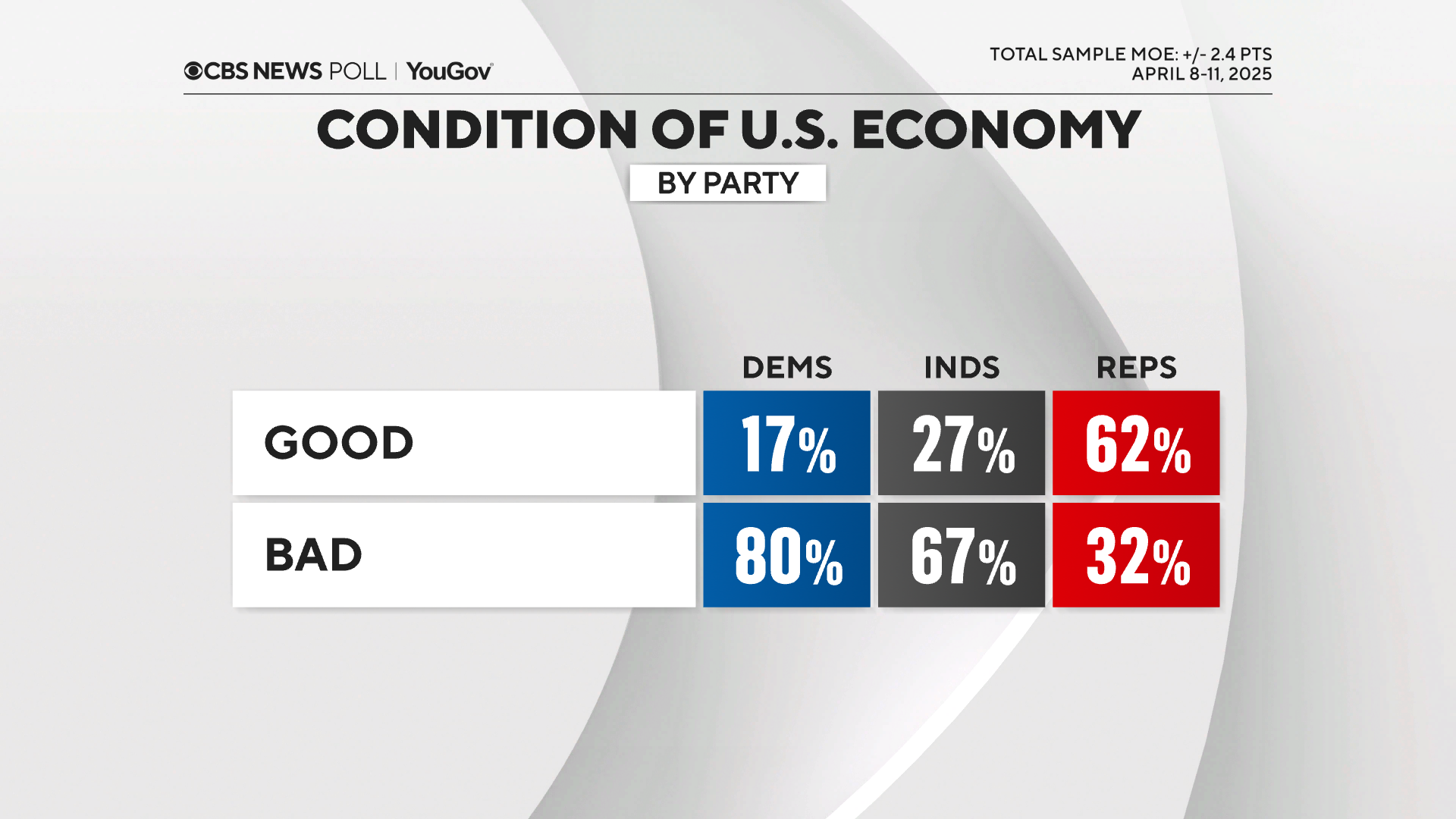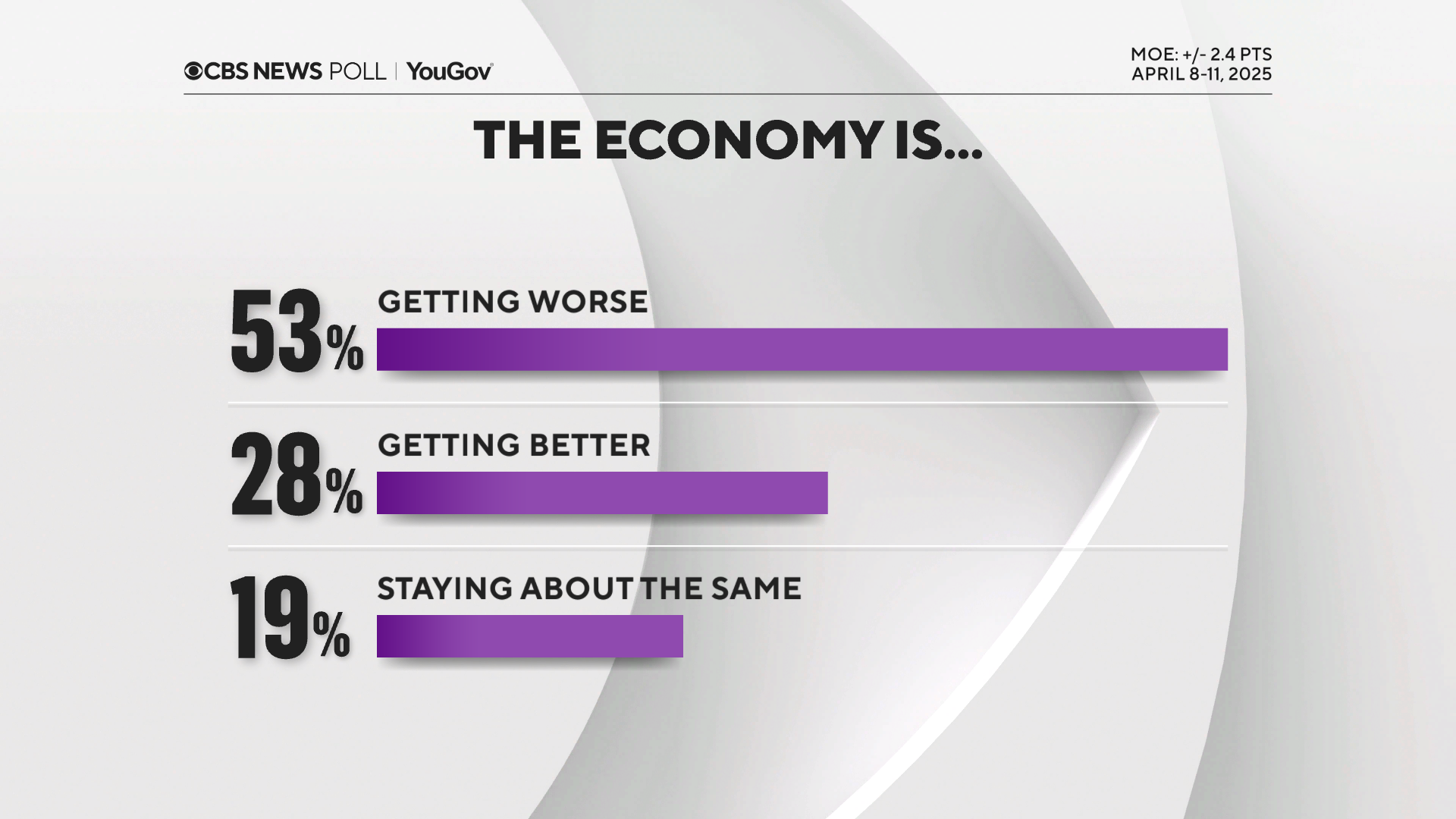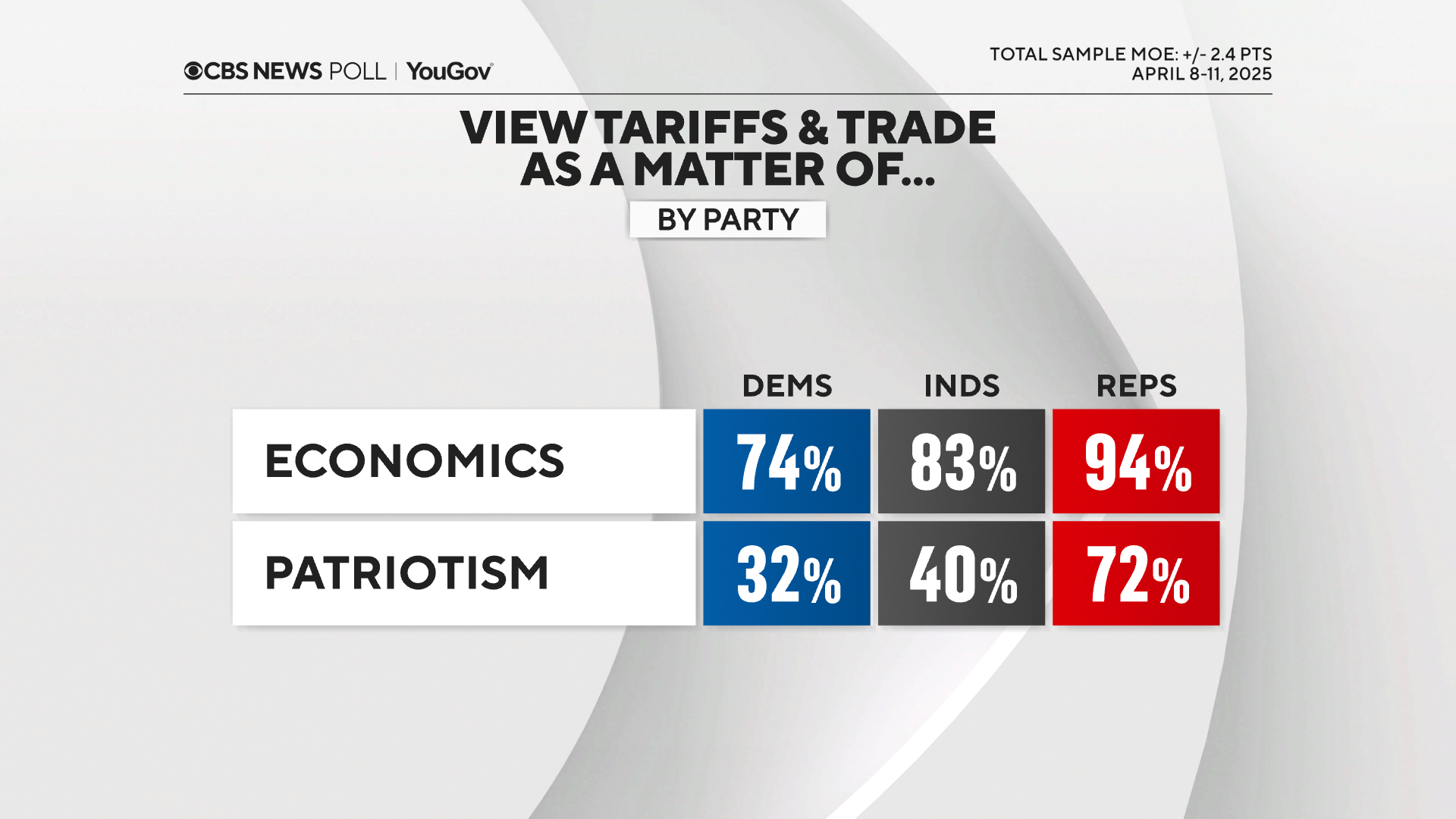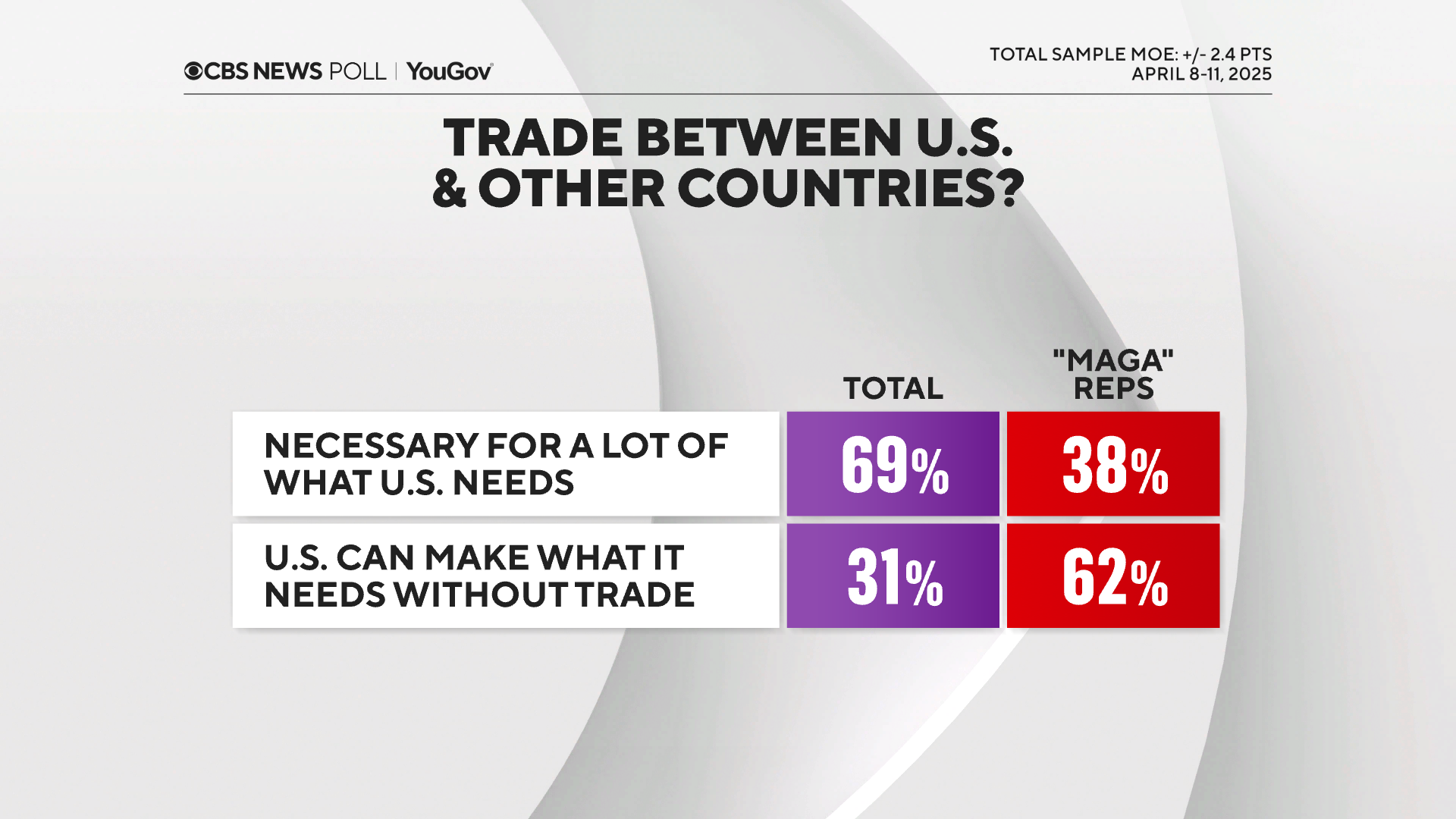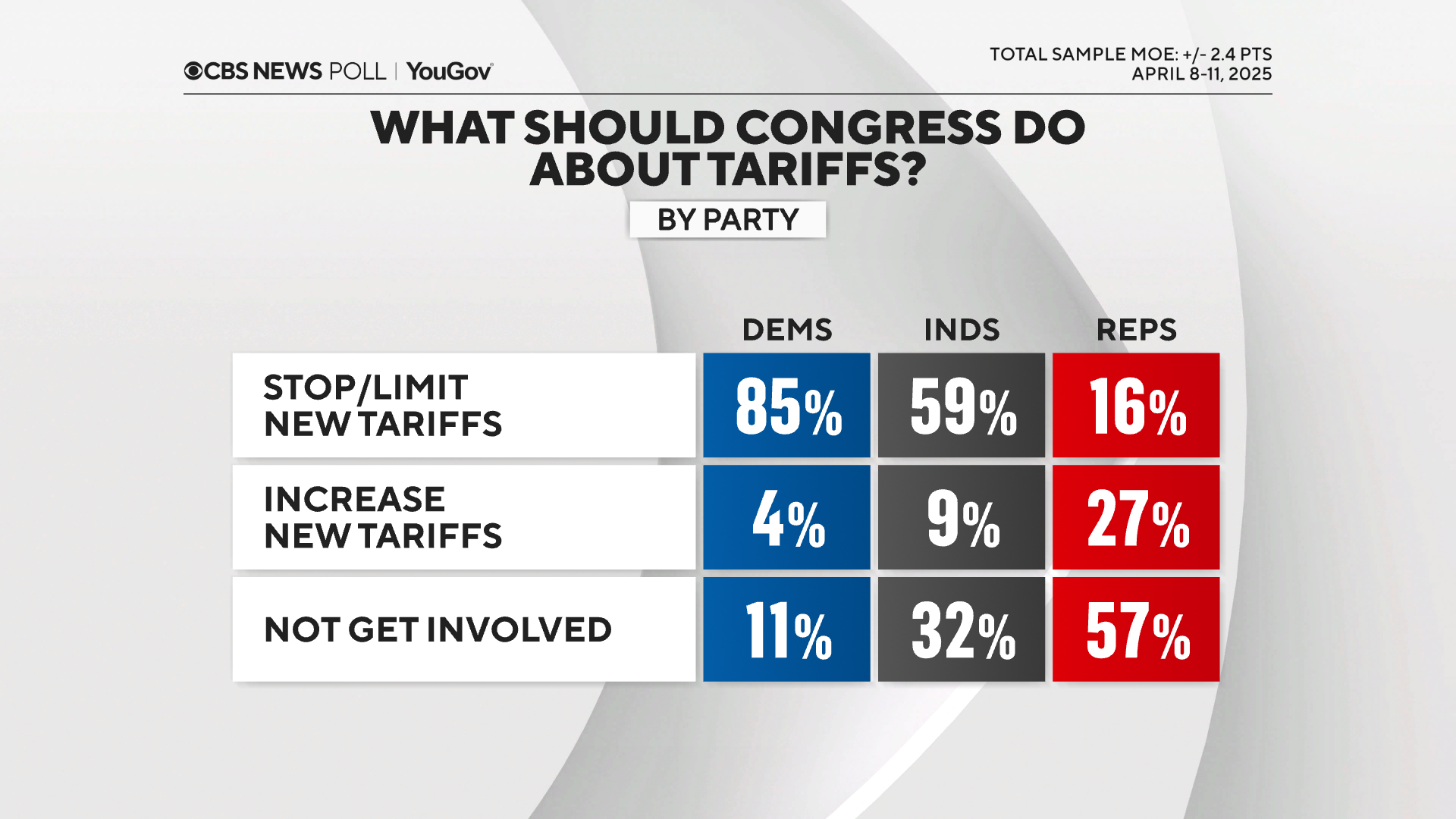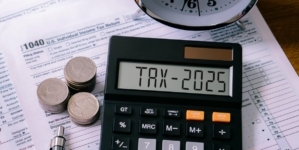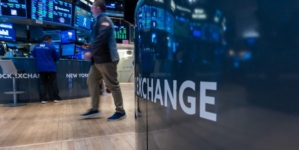-
Death toll in Dominican Republic disaster nears 250 as nightclub faces lawsuits - 9 mins ago
-
Millions in gold, jewels stolen by burglars who tunneled into downtown L.A. jewelers - 13 mins ago
-
Luigi Mangione Death Penalty Decision Sparks Big Donation - 14 mins ago
-
5 bold predictions for first round of NFL Draft: Who trades up for Shedeur Sanders? - 16 mins ago
-
Mom fatally shot in bed next to her 3 kids; scene was allegedly staged as home invasion - 45 mins ago
-
There Is One Coach NFL Draft QB Quinn Ewers Would Love to Play For - 57 mins ago
-
2025 NBA playoff odds tracker: Who will emerge from Play-In, first round? - 59 mins ago
-
Journalists accused of working for Kremlin foe Navalny convicted of extremism - about 1 hour ago
-
Dodger Stadium among new venues for 2028 L.A. Olympics - 2 hours ago
-
Four Trades to Make Chicago Cubs True Contenders in the National League - 2 hours ago
Trump tariff plans bring concern about prices, financial impact, but GOP base sees jobs long-term — CBS News poll
Amid a tumultuous week in the markets, the outlook on President Trump’s trade and tariff policy hinges not just on what Americans think will happen, but when.
People split on whether they believe Mr. Trump has a clear plan, and most don’t think the tariffs will be permanent — rather that he’s using them to negotiate. More like his goals regarding trade policy than his approach to it. For those who think he does have a plan — predominantly, Republicans — it’ll take months or longer to judge the impact. Republicans stand apart from the public overall in showing that patience.
But in the short term, a big majority of Americans think new tariffs are going to raise prices, and many think that’s the case in the long term, too. So, an inflation-weary public is bracing for that to hit their bottom line: a growing number think Trump’s policies are making them financially worse off, not better, and most think that tariffs will make the economy worse more immediately, too.
In turn, Trump’s ratings for handling inflation and the economy have become more negative.
Either way one lasting impression may be this: in the public mind it is Donald Trump’s economy now. A majority say his policies, not Joe Biden’s, are responsible for it.
Views about the potential impact on prices are especially important in this context because in recent years inflation has consistently been a top concern for Americans, and it is still a top way people evaluate their finances and the economy.
Opinion is more mixed on how tariffs might impact U.S. manufacturing jobs: it is mostly Republicans who believe they will lead to more jobs.
Trump’s trade policies
In all, more people say they like Trump’s goals with tariff and trade policy than like his approach.
And new tariffs continue to get net negative — but very partisan splits — in support.
As does the view on whether or not Trump has a plan, where almost all Republicans say so.
Most Americans don’t think the tariffs will stay — they think Mr. Trump is using them for negotiations and will remove them later. Republicans especially think that — and it’s related to how they view the long-term impact on prices.
Despite many anticipating short-term price increases, Republicans and most independents say judging Trump’s trade policies will take at least a few months to evaluate, while Democrats are more ready to evaluate them sooner.
Support for tariffs is also connected to who people think they’ll help or hurt. Either way large numbers think the wealthy and corporations will benefit. Those in favor see the middle and working class benefitting too.
Trump’s job handling
When Mr. Trump was entering office, a sizable four in 10 Americans thought he’d make them financially better off — it was a key reason he won the election. That changed in March, with more seeing the impact as worse, and now that worsening view has continued today.
The market was volatile this week while the poll was being conducted, but overall more Americans said Mr. Trump’s policies were making the market go down.
In all, the trend is for sliding ratings for Mr. Trump on handling the economy, handling inflation, and overall. (That overall number is down from its high at the start, but still higher than anything he had in his first term.)
Some of the change in Mr. Trump’s overall approval has come from independents disapproving more.
As has been the case, Mr. Trump gets better marks for handling immigration than either the economy and inflation.
Impacting the economy
Ultimately, every president’s policies put their stamp on the U.S. economy. In political terms, most of the public considers this Donald Trump’s economy now: the majority view his policies (not Joe Biden’s) as mostly responsible for the way things are today. And combined, three-quarters assign him at least shared impact.
Here’s another way Mr. Trump is a central figure in the economy: given a list of reasons why they might think the economy is either good or bad, in either case, sizable numbers give Mr. Trump as a reason. For the large majority who think it’s bad, prices and general lack of confidence are top reasons, along with Donald Trump specifically. Those who think the economy is good — a group that includes a lot of Republicans — list Mr. Trump, along with general confidence, and the job market.
Polarization also plays a role in a difference between people’s assessments now and their outlook. In the last few weeks, their collective outlook has changed a little more.
First, views about their own outlook for the economy got a little worse, with fewer expecting it to hold steady and more expecting a recession.
And a slight majority of Americans — and slightly more than last month — said they think the economy is getting worse. That came from Democrats, as most Republicans say it’s getting better. (Separately, in a different study, the consumer confidence index slipped in April.)
Meanwhile, current views of the U.S. economy have been majority negative for years and still are. More Republicans are calling it good now, a partisan effect we often see over the years when the White House changes hands. And Republicans say that’s in part due to their confidence in general and because of Donald Trump in particular. Those Republicans pushed the overall economy rating up a bit, even as Democrats and independents rated it worse.
Partisan differences on trade — how the base sees it
We can see more into Mr. Trump’s support from the GOP base by where people go for trusted information about the tariffs and their impact: for Republicans, they trust Trump “a lot” for that information, far more than they do Wall Street or business leaders in general.
Along with economics and jobs, Republicans also see tariffs and trade as a matter of fairness and patriotism.
And most Republicans don’t want Congress involved, even though it’s a Republican-controlled Congress. Democrats and independents, who are less supportive of tariffs, likely for pragmatic reasons would call for more congressional involvement to stop them.
This CBS News/YouGov survey was conducted with a nationally representative sample of 2,410 U.S. adults interviewed between April 8-11, 2025. The sample was weighted to be representative of adults nationwide according to gender, age, race, and education, based on the U.S. Census American Community Survey and Current Population Survey, as well as 2024 presidential vote. The margin of error is ±2.4 points.
Source link
























